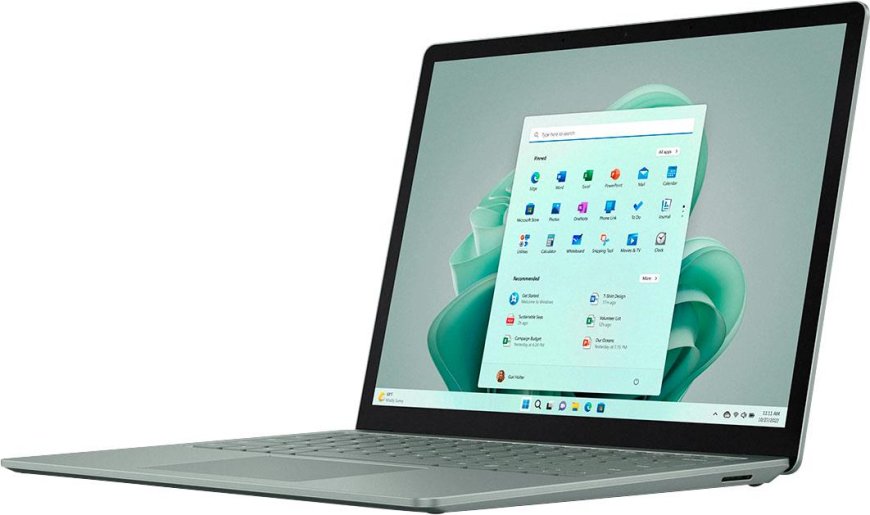Are Refurbished Laptops a Good Choice? Here’s What You Need to Know
Are Refurbished Laptops a Good Choice? Here’s What You Need to Know

In today’s tech-driven world, laptops have become an essential tool for work, study, and entertainment. However, the cost of a brand-new laptop can often be a barrier for many people. For those who want the power and functionality of a high-performance machine but at a fraction of the cost, refurbished laptops offer an appealing alternative. But are they really a good choice? Can they provide the same reliability and performance as new models? In this article, we’ll dive into the world of refurbished laptops, exploring the benefits, risks, and factors to consider when deciding if one is right for you.
What Are Refurbished Laptops?
A refurbished laptop is a previously owned device that has been returned to the manufacturer or a certified refurbisher for repair, testing, and restoration. These laptops may have been returned by customers due to minor issues, cosmetic defects, or simply because the user wanted a new model. After being inspected and repaired, the laptop is resold, often at a significant discount compared to its brand-new counterpart.
Refurbished laptops are typically sold by the manufacturer, third-party refurbishers, or authorized resellers. Depending on where you buy it, a refurbished laptop can come with a warranty, which adds a layer of security for buyers.
The Benefits of Buying a Refurbished Laptop
- Lower Cost, Same Performance
The primary benefit of a refurbished laptop is the cost savings. Refurbished models are usually sold at 30-50% less than their brand-new counterparts. For those on a budget or looking to get more value for their money, a refurbished laptop can offer top-tier performance at a fraction of the price. For example, you could get a high-end laptop with an Intel Core i7 processor, 16GB of RAM, and a dedicated graphics card for much less than the price of a new one with similar specs.
- Environmentally Friendly
Buying a refurbished laptop is also an eco-friendly choice. By choosing to purchase a laptop that has been repaired and reused, you’re helping reduce e-waste—a major environmental issue. Laptops have a long lifespan, and by reusing older models, you're contributing to sustainability efforts, preventing perfectly functional devices from ending up in landfills.
- Quality Testing and Refurbishment
Refurbished laptops undergo extensive testing and repair processes. Certified refurbishers often carry out rigorous inspections to ensure the device is in excellent working condition. These laptops are restored to near-new condition, which means that you can enjoy the same quality and functionality as a brand-new model, minus the price tag.
- Good Warranty and Return Policies
Many refurbished laptops come with a warranty (typically ranging from 90 days to 1 year), offering the same kind of protection you would receive with a new device. Reputable refurbishers also offer return policies, so if something goes wrong within a short period, you can return the laptop for a replacement or refund.
- Access to Higher-End Models
With refurbished laptops, you might be able to afford a higher-end model that you wouldn’t be able to purchase new. This is especially appealing for those seeking more powerful laptops, such as those with dedicated graphics cards, faster processors, or more storage. Buying refurbished makes these premium devices more accessible for those on a tighter budget.
Things to Consider Before Buying a Refurbished Laptop
While refurbished laptops offer great value, there are a few important things to keep in mind before making a purchase:
1. Condition of the Laptop
Not all refurbished laptops are created equal. The condition of a refurbished laptop can vary depending on how much repair or restoration it needed. Certified refurbishers typically offer high-quality products, but it’s always a good idea to check the condition of the laptop before buying. Make sure the seller provides information on the laptop’s cosmetic condition, and look for any signs of wear, scratches, or dents.
2. Limited Availability of Latest Models
If you're looking for the latest hardware, refurbished laptops might not always meet your needs. Manufacturers typically focus on refurbishing older models, which means you may not find the newest processors, graphics cards, or cutting-edge features in refurbished stock. However, some retailers do offer refurbished versions of newer laptops, although availability may be limited.
3. Battery Life
The battery life of a refurbished laptop might not be as good as that of a new one. Laptop batteries degrade over time, and while refurbished devices are often fitted with new batteries, this isn’t always the case. If battery life is crucial for you (for example, if you need the laptop for work or travel), it’s worth checking the details of the battery before buying. If it’s old, you might need to replace it soon after purchase.
4. Warranty and Support
While many refurbished laptops come with warranties, they may be shorter than the warranties for new models, or they may have more restrictive terms. It's important to read the fine print to ensure you're comfortable with the warranty and support options. Not all refurbished laptops come with the same level of customer support, so check the policy to see if the refurbisher offers free repair services or troubleshooting.
5. Outdated Software or Hardware
Another potential issue is that refurbished laptops might be running older versions of software or have hardware that’s no longer cutting-edge. While this isn’t a dealbreaker for everyone, it could affect performance, especially if you’re running resource-intensive programs. Ensure that the laptop you’re considering has up-to-date software, or is easily upgradable to the latest operating system.
Where to Buy Refurbished Laptops
When buying a refurbished laptop, it’s important to shop from reputable sources. Here are some good places to consider:
- Manufacturer Websites: Big brands like Dell, HP, Lenovo, and Apple often sell certified refurbished laptops directly from their online stores. These are typically the safest and most reliable sources.
- Authorized Resellers: Third-party vendors like Amazon or Newegg may sell refurbished laptops, but it's essential to make sure that the seller is authorized and provides clear details about the refurbishment process and warranty.
- Local Electronics Stores: Some local retailers offer refurbished laptops and may even provide in-person inspection before purchase.
- Refurbishers Specializing in Laptops: There are companies, such as BackMarket and Refurb.io, that specialize in refurbishing electronics and offering warranties.
Is a Refurbished Laptop Right for You?
Refurbished laptops can be an excellent choice for a variety of people, but whether they’re right for you depends on your specific needs and preferences. If you’re looking for a budget-friendly option and are willing to compromise slightly on the latest tech, a refurbished laptop can give you excellent value for money. On the other hand, if you’re after the latest specs, cutting-edge features, or guaranteed reliability, you might want to go for a brand-new model.
Ultimately, the key is to do your research and make sure that the refurbished laptop you're considering comes from a reliable source, has a decent warranty, and meets your performance needs. With the right approach, a refurbished laptop can serve you well for years to come.
Conclusion
Refurbished laptops are a smart and cost-effective solution for those looking to get a high-quality device without breaking the bank. By offering powerful performance at a lower price point, they provide an appealing alternative to new models. However, it’s important to weigh the pros and cons, particularly when it comes to warranty, condition, and battery life. With careful consideration and a bit of research, you can find a refurbished laptop that meets your needs and provides excellent value for money.
What's Your Reaction?















![Tranquil Blend CBD Gummies [Price UPDATED 2024] - Cost Solves](https://news.bangboxonline.com/uploads/images/202412/image_430x256_676d404cc1dc0.jpg)













